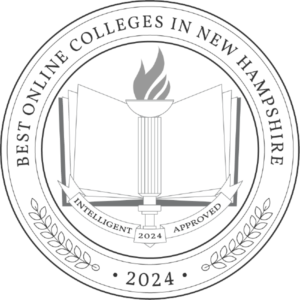MS in Clinical Mental Health Counseling Program Description
The Master of Science in Clinical Mental Health Counseling (CMHC) is an intensive two-year, 60-credit degree program designed to provide students with the educational, experiential, and dispositional components required for state licensure as an independently practicing clinical mental health counselor.
The program is delivered over a minimum of nine academic terms and culminates with a clinical field experience (i.e., practicum and internship) that is a minimum of 700 hours. Under the close guidance and supervision of program faculty and on-site licensed clinicians, students will engage in direct service with clients during their clinical field experience. The CMHC program is carefully curated to connect students with the world of clinical mental health counseling through coursework infused with research; scientifically based best practices; hands-on, supervised clinical learning; and the application of professional ethics embedded in social justice.
The CMHC program at NEC recognizes that educating clinical mental health counselors demands a deep understanding of oneself in relation to others. It is essential for developing the self-awareness, empathy, resilience, and ethical grounding necessary to navigate the cognitive complexities of therapeutic work with competence, compassion, and integrity. As such, the program faculty are committed to cultivating an atmosphere of acceptance for students’ deliberate, in-depth, self-exploration of the qualities, attitudes, and behaviors that influence the formation of effective therapeutic relationships.
- It is the sole responsibility of the student to ensure fulfillment of state licensing law requirements.
- The exact number of clinical training hours may vary according to state licensing laws
Program Mission
New England College’s CMHC program cultivates and prepares compassionate, competent clinical mental health counselors who actively engage in reflective, ethical, culturally responsive, and scientifically based clinical practices that promote personal growth, resilience, empowerment, and effectiveness among individuals, groups, families, and communities.
Licensure
NEC conducts an annual audit of the published clinical mental health licensing law requirements for all 50 US states and its five inhabited territories. The licensing laws are regulated by each individual state’s licensing board, may vary widely, and can fluctuate regularly.
While NEC does its best to ensure the accuracy of this disclosure statement, it is strongly recommended that each student contacts the licensing board in the state they intend to practice, to confirm their licensing requirements. Here is a link to a directory of counseling licensure boards: www.nc-sara.org/resources/professional-licensure.
Please note that in addition to educational requirements, ALL states have post-degree requirements for clinical mental health counseling licensure (i.e., accumulation of supervised post-degree clinical hours, state licensing exams, etc.).
As a result of the 2023 annual review of state licensure requirements, NEC has determined the following:
| Determination | States |
| New England College has determined that the Clinical Mental Health Counseling program meets the educational requirements in these states. | Alaska, Arizona, Connecticut, Delaware, Georgia, Illinois, Indiana, Maine, Maryland, Massachusetts, New Hampshire, New Jersey, North Dakota, Pennsylvania, Rhode Island, Tennessee, Texas, Vermont, Virginia, and Washington. |
| New England College has not yet determined if the Clinical Mental Health Counseling program meets the educational requirements for licensure in these states. | American Samoa, Arkansas, California, Colorado, the District of Columbia, Guam, Idaho, Iowa, Louisiana, Michigan, Minnesota, Mississippi, Montana, Nebraska, Nevada, New Mexico, Northern Mariana Islands, Ohio, Oklahoma, Oregon, Puerto Rico, South Carolina, South Dakota, US Virgin Islands, Utah, West Virginia, Wisconsin, and Wyoming. |
| New England College has determined that the Clinical Mental Health Counseling program does NOT meet the educational requirements for licensure. | Alabama, Florida, Kansas, Kentucky, Missouri, New York, and North Carolina. |
Students are encouraged to reach out to Amy Reynelli, Clinical Coordinator, at areynelli@nec.edu with questions.



